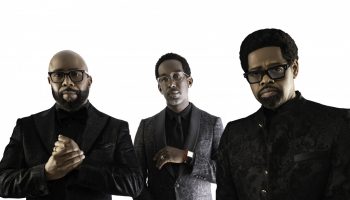
The (self-made) man, the myth, the American composer legend; John Philip Sousa is best remembered for creating some of the most groundbreaking music of his time. But a lesser-known fact about “The American March King” is that he has local connections to Chautauqua Institution.
Local Sousa historian Richard Lundquist will give a lecture about the composer and conductor’s life, music and visits to Chautauqua at 3:30 p.m. today, July 16, in the Hall of Philosophy, as part of the Oliver Archives Heritage Lecture Series.
Lundquist, a retired teacher who taught for 35 years, is the director of the Jamestown Municipal Band. He has led weeklong classes on Sousa and American songwriter Stephen Foster as part of Chautauqua Institution’s Special Studies program.
This year, he hopes to show what made Sousa such an exceptional part of American musical history — and local history.
“I’m going to talk about Sousa the man, what made him so special — because he was more than his music,” Lundquist said. “I’m also going to talk about the incredible, wide variety of music that he did. Finally, I’m going to talk about his visits to Chautauqua.”
Lundquist, who has a master’s degree in music education, said Sousa’s impact is sometimes overlooked.
“A lot of people know only a little bit about Sousa,” Lundquist said. “I think that in some cases in music education, they overlook Sousa because he was a band guy and not an orchestra guy, and because he didn’t write symphonies — but he wrote a lot of what was considered popular music. That’s what people listened to.”
Lundquist’s fascination with Sousa’s legacy began in high school, when he first heard the composer’s marches. When he began to study music, he saw that Sousa was adept at crafting short, powerful pieces.
“When you study them, you see how carefully crafted they are; they’re just as carefully crafted as any symphony would be and they only last about 3 1/2 minutes,” Lundquist said. “He was just so inventive — he did things that nobody else did and broke new ground. And that’s why we remember people.”
Lundquist said Sousa’s life was just as exceptional as his music.
The composer’s story began when he was born to two immigrant parents in America — one of nine children. Lundquist said Sousa’s life was marked with determination and patriotism.
“Whatever he was wanting to do, he did it and he did it well,” Lundquist said. “And throughout his life, he was very proud to be an American. He kind of paralleled our country. America had just emerged from the Civil War and was starting to expand, starting to grow; it was making its place in the world. And so were Americans.”
In fact, Lundquist said Sousa was the epitome of a popular American idea: the self-made man.
“He took his place alongside people like Thomas Edison, for example — another self-made man,” Lundquist said. “That’s pretty much what Sousa was; he had some training, but nowhere near what someone would get today, and he made the most of it. He took it and ran.”
According to Lundquist, Sousa kept running and eventually changed worldviews about American music when he and his band completed a world tour in 1911.
“That’s the first time any American organization had done that,” Lundquist said. “It really changed the whole world’s opinion of American music and American musicians from ‘Oh, they’re just the second best to us Europeans,’ to ‘They are the equals of anywhere in the world.’ ”
But Sousa also has a local legacy. Lundquist said that Sousa visited the Institution several times.
“He was a superstar of his day — name a big star and that was him,” Lundquist said. “He came to Chautauqua with his band four times, and one time he came by himself to conduct a work with the Chautauqua Symphony and the Chautauqua Choir.”
Lundquist said Sousa held many of the same values as Chautauqua Institution.
“What he did paralleled Chautauqua in a lot of ways: the fact that he was a lifelong learner (and) the fact that he liked new ideas and would incorporate them into his programs,” Lundquist said.




